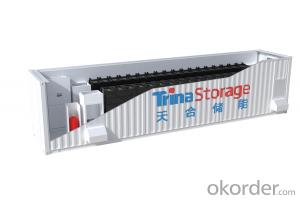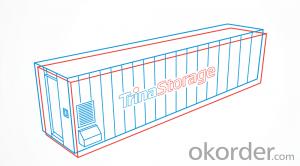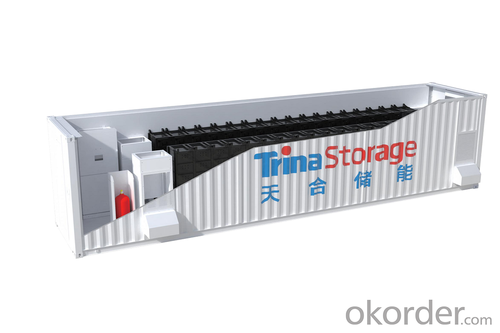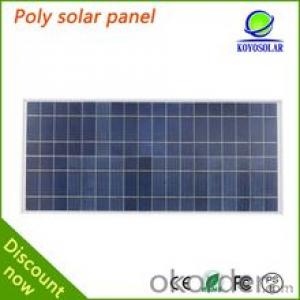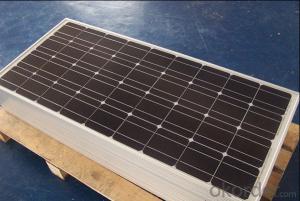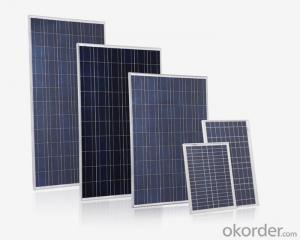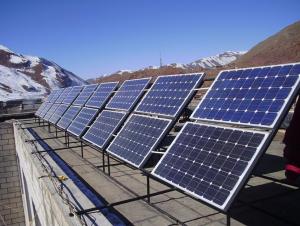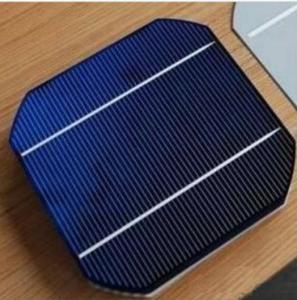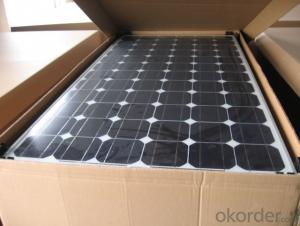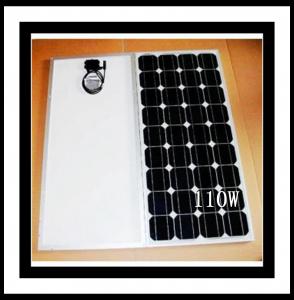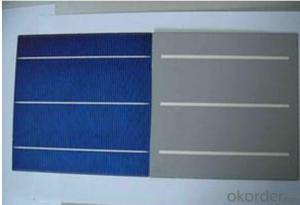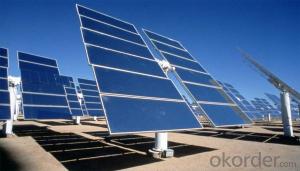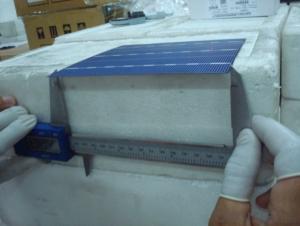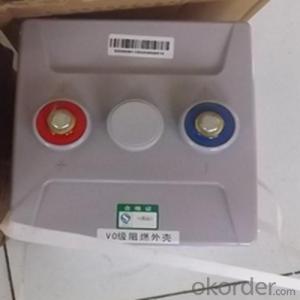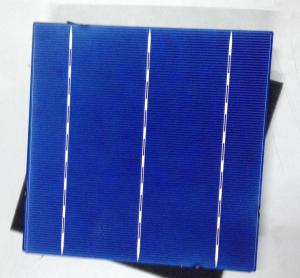Mono Crystal Solar Cells Container Energy Power Storage System Battery Pack Solar Energy
- Loading Port:
- Shanghai
- Payment Terms:
- TT OR LC
- Min Order Qty:
- 1 set
- Supply Capability:
- 10 set/month
OKorder Service Pledge
OKorder Financial Service
You Might Also Like
Specification

Container energy power storage system battery pack solar energy
Safety and reliable
● Optimized LFP route, strict cell safety test;
● Thermal simulation design of the whole process from PACK to container;
● Full range of electrical protection: high and low voltage separation, insulation monitoring, grounding protection, lightning protection design;
● Industrial grade temperature control system, to ensure the efficient and reliable operation of the system;
● Intelligent fire control, strategic linkage, multi-level protective measures.
Multidimensional integration
● Easy to transport, installation and operation;
● Easy to copy and expand modularized;
● Highly integrated battery module design to reduce internal resistance, improve consistency and energy efficiency;
●Intelligent local controller unified scheduling management in the box to improve the overall security and stability of the system.
Intelligence and Efficiency
● Large capacity, low internal resistance, long life of the cell design, improve the economy;
● High stability chip level BMS technology, improve battery SOC and available capacity accuracy;Cell level monitoring, improve the consistency and life of batteries;
● Full scene integrated EMS system architecture, high efficiency, digital, intelligent to ensure the reliability, stability and economy of energy storage and power supply;
● Fault prediction, fault identification and quick positioning.
| Item NO. | TSMG00002650 | TSMG00002660 | TSMG00002800 | TSMG00003100 |
| Battery specification | ||||
| Rated discharge rate | 1C | 0.5C | 0.5C | 0.25C |
| Battery cell | 3.2V/120AH | 3.2V/145Ah | 3.2V/120Ah | 3.2V/145Ah |
| Configuration | 1P216S | 2P24OS | 2P228S | 2P240S |
| Voltage range | 604.8-788.4V | 672-850V | 638.4-809.4V | 672-850V |
| Nominal capacity | 2.65MWh | 2.66MWh | 2.80MWh | 3.10MWh |
| Communication Interface | CAN,RS485,Ethernet | CAN,RS485,Ethernet | CAN,RS485,Ethernet | CAN,RS485,Ethernet |
| System specification | ||||
| Number of battery pack | 32 | 12 | 16 | 14 |
| IP | IP54 | IP54 | IP54 | IP54 |
| Size( L*W*H) | 13716mm*2438mm*2896mm | 12192mm*2438mm*2896mm | 12192mm*2438mm*2896mm | 12192mm*2438mm*2896mm |
| Weight(Include/exclude the battery) | 48.4T/8T | 38T/7T | 39T/7T | 38T/7T |
| Battery temperature control mode | Industrial grade temperature controlled air conditioning | Industrial grade temperature controlled air conditioning | Industrial grade temperature controlled air conditioning | Industrial grade temperature controlled air conditioning |
| Fire extinguishing system | HFC-227ea fire extinguishing system | HFC-227ea fire extinguishing system | HFC-227ea fire extinguishing system | HFC-227ea fire extinguishing system |
Images of Container energy power storage system

- Q: Can solar cells be used for powering water treatment plants?
- Yes, solar cells can be used for powering water treatment plants. Solar energy can be harnessed and converted into electricity to power the various processes and equipment required for water treatment. This renewable energy source offers a sustainable and environmentally friendly solution for powering water treatment plants.
- Q: Can solar cells be used in remote areas with no grid access?
- Yes, solar cells can be used in remote areas with no grid access. Solar cells, also known as photovoltaic cells, convert sunlight into electricity. As long as there is sunlight available, solar cells can generate electricity, making them a viable and sustainable solution for remote areas without access to the grid. These areas can benefit from solar power to meet their energy needs, power appliances, and even provide electricity for basic services like lighting, communication, and water pumping.
- Q: Can solar cells be used in camping or outdoor recreational activities?
- Yes, solar cells can be used in camping or outdoor recreational activities. They are portable and can be used to power various devices such as smartphones, lights, and even small appliances. Solar panels can be easily set up in camping sites to harness energy from the sun and provide a sustainable and convenient power source in remote locations.
- Q: How do solar cells perform in areas with limited space for installation?
- Solar cells can still perform effectively in areas with limited space for installation by utilizing innovative technologies such as rooftop solar panels, vertical solar panels, or solar panels integrated into building materials. These compact and space-efficient designs allow for the generation of solar energy even in tight spaces, making it possible to harness the benefits of solar power without requiring vast expanses of land.
- Q: What is the pollution of solar cells?
- the city warehouse classification storage; 5, centralized custody, waiting for the introduction of domestic waste battery recycling technology; 6, increase the size of the battery recycling; 2, regular hand-site acquisition; 3, battery classification (ordinary battery, button batteries)
- Q: What is the impact of partial shading on solar cell performance?
- Partial shading on solar cell performance can have a significant negative impact. When a solar cell is partially shaded, even a small portion of shading can reduce its overall power output. This is because shaded cells create voltage mismatches within the solar panel, leading to decreased current flow and overall efficiency. Additionally, partial shading can also cause hotspots, which can damage the solar cells and reduce their lifespan. Therefore, it is crucial to design solar systems carefully, avoiding any shading to ensure optimal performance and maximize energy generation.
- Q: Can solar cells be used in desert areas?
- Yes, solar cells can be used in desert areas. In fact, desert regions are ideal for solar energy production due to their high levels of sunlight and low cloud cover. The arid conditions also help keep solar panels clean and free from debris, maximizing their efficiency.
- Q: Can solar cells be used for powering desalination plants?
- Yes, solar cells can be used for powering desalination plants. Solar energy can be harnessed through photovoltaic panels, which convert sunlight into electricity. This electricity can then be used to power the desalination process, where saltwater is converted into freshwater through various methods such as reverse osmosis or distillation. Utilizing solar cells for powering desalination plants offers a sustainable and renewable energy source, reducing reliance on fossil fuels and minimizing the environmental impact of the desalination process.
- Q: How do solar cells affect the environment?
- Solar cells have a positive impact on the environment as they produce clean and renewable energy, reducing the reliance on fossil fuels and lowering greenhouse gas emissions. Additionally, the production and operation of solar cells have minimal environmental impact compared to conventional power generation methods. However, the manufacturing process of solar cells does require some resources and can generate waste, but overall, the environmental benefits outweigh these concerns.
- Q: What is the impact of bird droppings or debris on solar cell performance?
- Bird droppings or debris on solar cell surfaces can significantly impact their performance. The accumulation of bird droppings or debris on the surface of solar cells can block sunlight from reaching the cell, reducing the amount of energy the cell can generate. This obstruction can lead to a decrease in the overall efficiency of the solar panel. Additionally, bird droppings contain corrosive substances that can damage the protective coatings on the solar cells, potentially reducing their lifespan. Therefore, regular cleaning and maintenance of solar panels is essential to ensure optimal performance and maximize energy production.
Send your message to us
Mono Crystal Solar Cells Container Energy Power Storage System Battery Pack Solar Energy
- Loading Port:
- Shanghai
- Payment Terms:
- TT OR LC
- Min Order Qty:
- 1 set
- Supply Capability:
- 10 set/month
OKorder Service Pledge
OKorder Financial Service
Similar products
Hot products
Hot Searches
Related keywords
